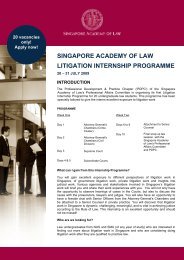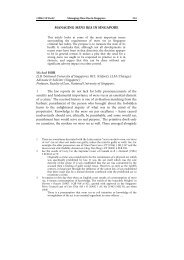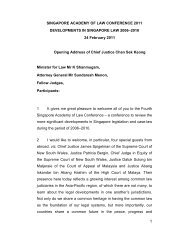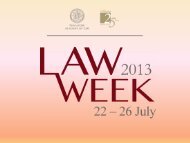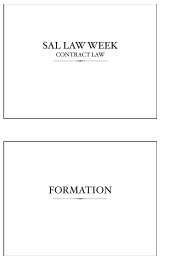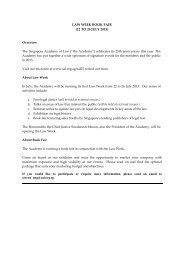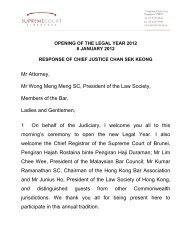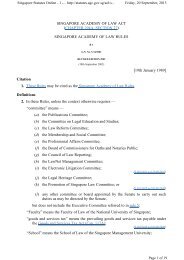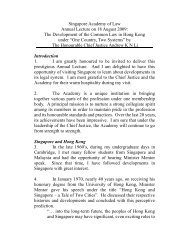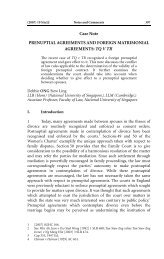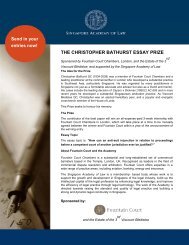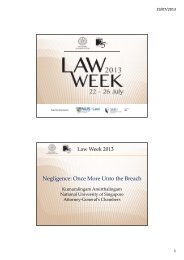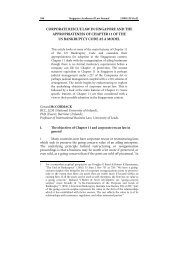View Article - Singapore Academy of Law
View Article - Singapore Academy of Law
View Article - Singapore Academy of Law
You also want an ePaper? Increase the reach of your titles
YUMPU automatically turns print PDFs into web optimized ePapers that Google loves.
15 SAcLJ Matrimonial Assets and the 3 rd Party 249<br />
proceedings (“non-party without notice”). If the 3 rd party is given due<br />
notice <strong>of</strong> the ancillary matters proceedings, the 3 rd party may choose<br />
either to:<br />
(a) Take no part in the ancillary matters proceedings (“non-party<br />
with notice”)<br />
(b) Join the ancillary matters proceedings as a party (“a party”)<br />
under Order 15 Rule 6 (Misjoinder and nonjoinder <strong>of</strong> parties) <strong>of</strong> the<br />
Rules <strong>of</strong> Court 53 (“join/joining as a party”).<br />
4.3 Giving evidence and making findings<br />
4.3.1 Giving evidence<br />
72 It is submitted that whether the 3 rd party is a party to the<br />
ancillary matters proceedings or not, he can still give evidence in the<br />
proceedings. A 3 rd party who is a party to the ancillary matters<br />
proceedings would give evidence in the proceedings for himself.<br />
73 A 3 rd party who is a non-party to the proceedings would give<br />
evidence in the proceedings as a witness for either the husband or the<br />
wife, if he is requested by them to do so. He may also set out his position<br />
in respect <strong>of</strong> the 3 rd party issue in his affidavits. Pursuant to this, he may<br />
be cross-examined in court. See, for example, Audrey Lee Dawn, supra,<br />
(respondent husband’s father filed an affidavit and was cross-examined<br />
in court), Lee Sew-Iam Richard, supra (petitioner husband’s mother filed<br />
an affidavit in court), and Kng Poey Choo (m.w.) v Ong Chong Ken<br />
Kenneth and Another 54 (respondent husband’s father filed an affidavit in<br />
court). In none <strong>of</strong> these cases were the 3 rd parties joined as parties to the<br />
proceedings.<br />
4.3.2 Making findings<br />
74 Findings can obviously be made for or against a 3 rd party who is<br />
a party to the ancillary matters proceedings. However, it is also clear that<br />
in family cases the court is prepared to make findings for or against a<br />
non-party to the proceedings, even if he does not give evidence in the<br />
proceedings, or been given due notice <strong>of</strong> the proceedings.<br />
53<br />
54<br />
See Section 5.2 for a full discussion <strong>of</strong> Order 15 Rule 6.<br />
[2003] SGDC 83; the respondent wife’s appeal in this case was dismissed on 25<br />
August 2003.



